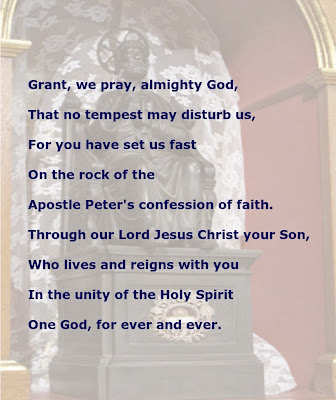Lectionary: 81Jesus said to his disciples:
“To you who hear I say,
love your enemies, do good to those who hate you,
bless those who curse you, pray for those who mistreat you.
To the person who strikes you on one cheek, offer the other one as well,
and from the person who takes your cloak, do not withhold even your tunic.
Anyone who is not challenged by Jesus's command to "love your enemies" must be dead. They're either lying in the grave and unable to hear the word, or truly have died and risen in the Lord. The rest of us must pause, stand accused and guilty, and listen once again.
Anyone familiar with the stories of Christmas and Easter recognizes the truth of Jesus's words. When Joseph and Mary arrived in Bethlehem they were turned away from the inn because, we're told, there was "no room for them." That may be because all the rooms were taken, or because the innkeeper could not risk the noise, confusion, and mess of childbirth within their facility.
Joseph, a native of Bethlehem, might have called on family and friends to raise hell about the turndown and demanded a room. He and his people might have deceived the innkeepers to spirit the woman into a room. But the Blessed Couple found a more acceptable accommodation, a birthing place which was perfectly fine for lambs and calves, and good enough for humans.
The story of Easter is even more pointed as we remember the Lord's innocence before the crowd, his accusers, judges, tormentors, and executioners. In the presence of his enemies, he was silent like a lamb led to slaughter. In neither story did anyone raise their hand against the enemy.
In contrast, we can remember the violence of the American revolution. Didn't the first American flag display a coiled serpent and a motto, "Don't tread on me?" How might the displacement of Native Americans and the war against the British been won without guns? In that inconceivable scenario, would the French, Spanish, Russians, Portuguese, and Dutch also have respected this frail experiment in self-governance? As G.K. Chesterton said, "Christianity has not failed; it's never been tried."
As we face the hatred so deeply embedded in American society, there is no need to suppose the United States ever was, could be, or might have been a Christian nation. The hysterical response to Critical Race Theory reveals like a withdrawing tide the violence that supports our civility. If we're ever to hear the Gospel we can begin by discarding childish fantasies of a Christian United States. It never was and never pretended to be.
Returning to the Gospel we remember Jesus's decision to wait on the LORD. He had followed the guiding Holy Spirit from the Jordan River, into the the wilderness, and back to Nazareth, Capernaum, Jericho, and Jerusalem even as friends and enemies warned him not to go to the capital city. It didn't take a weather man to see where God's Spirit was blowing. His final dying cry -- "Why have you forsaken me?" -- only accentuated his constant faith in the Father and the Spirit. For the LORD raised him up.
As we practice love for our enemies -- be they terrorists, communists, or new neighbors across the street -- we discard our weapons, dismiss our fears, and welcome the strangers.
I am convinced that God's name is Emmanuel, and since Easter it might be translated, "I am still here."
And we who believe in Jesus are also still here. God and our enemies know we're not innocent, sinless, or perfect. But we are still here and the Holy Spirit abides with us, and we're willing to absorb some animosity without reprisal.
We don't know how much we can absorb but neither should we say, "Thus far and no farther." We can let the Spirit mark the point when we get there, if we get there. And we might be reconciled with our enemies long before that. It happens more often than the military/industrial complex is willing to admit. (They stand to lose big in times of peace.)
War has been called negotiation by other means, and negotiations are war by other means. No one wins either. It's not too yet late to study the ways of peace.














